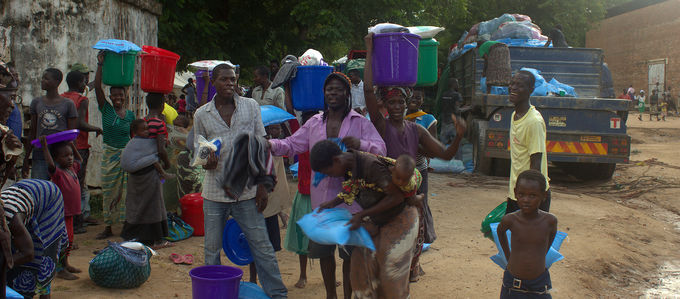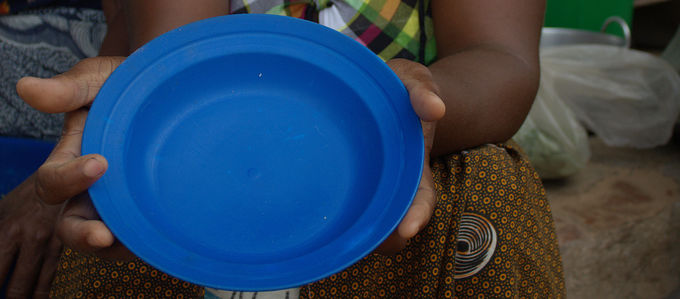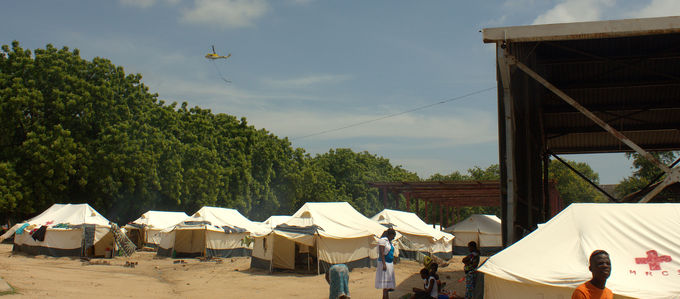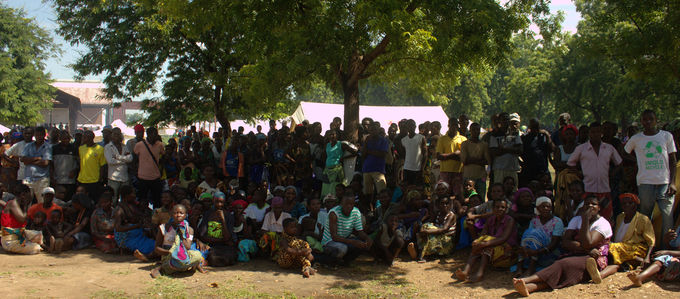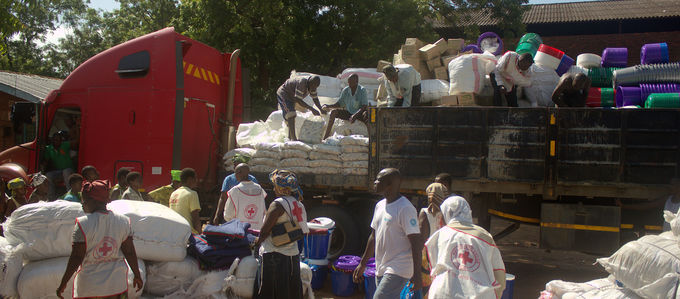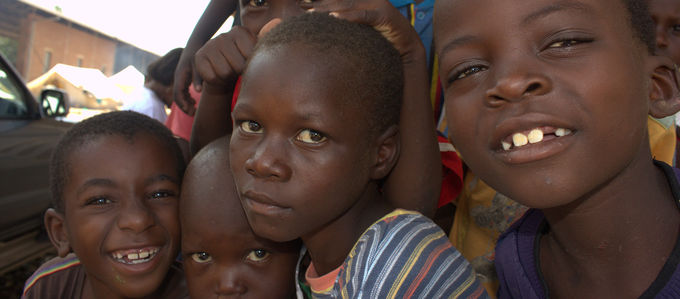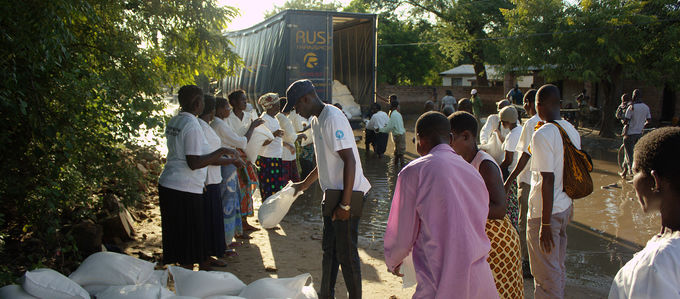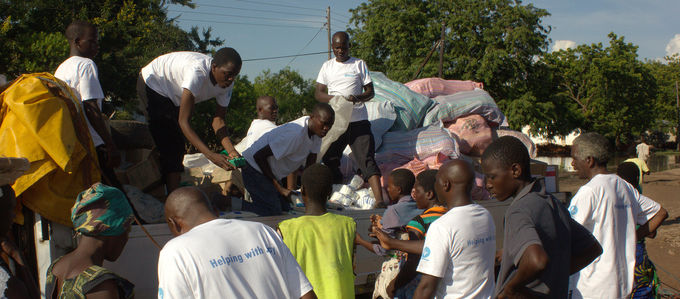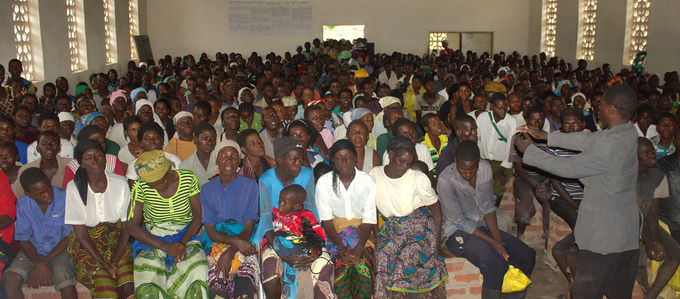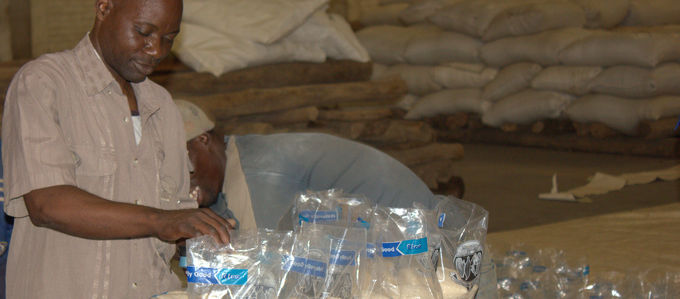One plate of cornmeal every two or three days

The flooding catastrophe in Malawi continues to cause suffering for hundreds of thousands of people. The New Apostolic relief agencies known as the Henwood Foundation and NAK-karitativ are at work in the area alongside other international organizations, and report as follows from the crisis region.
People in the southeast of the African country in particular are quite accustomed to, and prepared for, flooding. But this year, the rainfalls were late, heavy, and enduring. Some 64,000 hectares of land are under as much as a metre of water—and this in a region where most people make a living by farming.
According to the most recent report from the United Nations, approximately 610,000 Malawians will be dependent on aid for the next two to five months. Some 173,000 people have lost their homes and are living in emergency shelters. In the southernmost and poorest region of the country, Joana von Jamersted and Ann Soko, employees of NAK-karitativ (Germany) and the Henwood Foundation (Zambia), coordinated their relief efforts.
Still impossible to return home
“We are actually supposed to receive one plate of cornmeal every day, but at times there is no food at all for two to three days,” Siggy Yalu tells the two aid workers. The New Apostolic Malawian woman lives in Bangula Camp with her eight children. She is thankful for every meal and for every day they do not need to go hungry. The ten-member family has already been living in the camp for three months. Their house has been destroyed. It is still impossible for them to return home. Their home is still knee-deep in mud and water.
Some 100 tons of foodstuffs have already been distributed in the region by the two relief organizations. Quantities of cornmeal, rice, beans, sugar, and salt have been helping over 3,200 families make ends meet for the time being. Ten tons of food supplements and enriched cornmeal have been distributed to pregnant women, mothers with infants, the elderly, and the sick. Beyond that, the team assisting Ann Soko and Joana von Jamersted have given out blankets, dishes, buckets, and mosquito nets to needy families.
The food supply is not the biggest problem
The United Nations estimates that the flood victims will need nearly 24,000 tons of corn in the coming months. Yet that is not even the biggest challenge, as the relief workers discover in the village of Nsanje: “The biggest problem is the water and sanitary situation,” explains the leader of the local clinic. “Many camps, and even entire villages, have far too few toilets and water sources.”
This brings with it the threat of sickness: the United Nations have registered 148 cases of cholera to date. Two people have already died of this disease. “So far, cholera has only turned up outside of the camps,” relates the leader of the Nsanje clinic. “The moment the sickness finds its way into the camps, the infectious disease becomes very difficult to control.” In order to arm the clinic, the Henwood Foundation and NAK-karitativ have flown in large numbers of hygiene kits.
Preparations for reconstruction
The people lodged in emergency shelters will still have to endure until the end of the rainy season in April. Only then can they dare to undertake the way back to their destroyed houses and fields. The two New Apostolic relief organizations are already preparing for this. At present, tarpaulins are being organized and will shortly be sent to the disaster area. These can either be used as shelters or serve to provide temporary repair to houses.
But the battle for survival is not yet at an end: the people of Southern Malawi still face the challenge of rebuilding their livelihoods and reclaiming their fields for farming.










